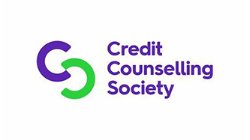The Comprehensive Advantages of Using Credit Counselling Services - EDUdebt for Debt Alleviation
The Comprehensive Advantages of Using Credit Counselling Services - EDUdebt for Debt Alleviation
Blog Article
Comprehensive Overview to Effective Credit Report Counselling Methods for Sustainable Financial Health
The realm of credit scores counselling stands as a beacon of guidance in this complex landscape, providing customized methods to empower people towards much better financial end results. Join us as we unravel the layers of efficient credit history counselling methods designed to pave the means for a more thriving and secure financial future.
Comprehending Credit Report
Recognizing the value of credit report is important for managing individual funds effectively. A credit report is a numerical depiction of an individual's creditworthiness, showing to lenders the level of danger connected with extending credit score to that person. It is an important variable that affects the rates of interest provided on financings, charge card authorizations, and also rental applications.

Keeping track of one's credit rating rating on a regular basis can help recognize inconsistencies or illegal activities that can adversely affect their financial wellness. By understanding credit history and the behaviors that influence them, people can make informed economic decisions, develop a favorable credit report, and work in the direction of achieving their long-lasting economic goals.
Budgeting and Expenditure Monitoring
Developing a detailed budgeting strategy and vigilantly monitoring expenses are fundamental techniques for people striving to obtain monetary security and control over their monetary resources. A budget plan works as a roadmap, outlining income sources, taken care of expenditures like rent or finance payments, variable expenses such as groceries and home entertainment, and financial savings objectives. By developing a budget, individuals acquire a clear understanding of their monetary standing and can make educated choices on costs and conserving behaviors.
Expenditure monitoring enhances budgeting by providing a thorough account of where money is being spent. This process includes videotaping all expenses, whether tiny or large, to recognize locations where investing can be maximized or lowered. Making use of devices like budgeting applications or spreadsheets can simplify expense tracking and deal understandings right into costs patterns in time.
Through consistent budgeting and expense monitoring, people can proactively handle their financial resources, avoid overspending, and work in the direction of attaining their economic goals. These techniques advertise responsibility and equip individuals to make strategic economic decisions that align with their long-term purposes.
Financial Obligation Administration and Debt Consolidation
Having established a strong foundation through budgeting and expenditure monitoring, the next crucial action towards achieving economic wellness involves efficient debt administration and consolidation techniques. Financial debt monitoring is the procedure of developing an organized plan to repay financial debts in a timely fashion, while financial obligation consolidation entails combining numerous debts right into a single repayment, typically with a reduced rate of interest price.
One trick method in debt monitoring click here to read is prioritizing financial obligations based upon rate of interest prices and amounts owed. By settling high-interest Full Article financial debts first, individuals can decrease the total interest paid gradually. Additionally, negotiating with financial institutions for lower rates of interest or setting up a workable payment plan can assist people remain on track with their debt payment.
Financial debt debt consolidation can streamline the repayment process by integrating numerous financial debts into a single monthly repayment. This can make it much easier to track and take care of financial debts, potentially reducing monthly repayments and total interest costs. Nevertheless, it is vital to carefully think about the terms of the debt consolidation loan to ensure it is truly useful in the lengthy run. By carrying out reliable financial debt monitoring and loan consolidation strategies, people can function in the direction of minimizing their financial debt problem and accomplishing higher monetary stability.

Credit Structure Methods
Implementing critical credit-building techniques is essential for people looking to improve their economic standing and improve their loaning capabilities. One reliable technique is to get a safe bank card, which needs a down payment to work as security and helps establish a favorable payment background. Prompt payments on existing debts are vital for increasing credit rating, so establishing automated payments or tips can assist in this process. Furthermore, maintaining credit rating use reduced, ideally below 30% of the overall credit line, demonstrates accountable credit management. credit counselling services - EDUdebt. On a regular basis keeping track of credit report records for inaccuracies and errors is also crucial, as dealing with these concerns can protect against unfavorable impacts on credit report. One more method is to come to be a certified individual on somebody else's debt account, taking advantage of their favorable credit rating. Lastly, avoiding opening up numerous brand-new accounts within a short period can stop queries that may reduce credit report. By carrying out these methods regularly, individuals can gradually reinforce their credit accounts and accomplish sustainable financial health.
Financial Education and Preparation
To further fortify their monetary structure, individuals can improve their credit-building progression by acquiring extensive economic education and learning and developing a calculated preparation structure. Financial education plays a crucial role in encouraging people to make enlightened choices concerning their finance. By comprehending crucial monetary ideas such as budgeting, conserving, investing, and financial obligation monitoring, people can browse the intricacies of individual money better.
Additionally, tactical monetary planning is necessary for establishing and achieving long-lasting monetary goals. Developing a detailed financial plan that describes earnings resources, costs, financial savings targets, and financial investment strategies can help individuals stay organized and focused on their monetary goals. On a regular basis adjusting this strategy and examining in response to changes in income, expenses, or economic website link objectives is likewise essential to guarantee its performance.
Final Thought
To conclude, efficient credit counselling approaches are crucial for accomplishing sustainable financial health. By comprehending credit history, budgeting, managing financial debt, developing credit report, and financial education and learning, people can improve their economic health and wellness and make informed choices. Implementing these approaches can cause long-term economic stability and protection. It is necessary to seek specialist guidance and assistance when navigating the complexities of credit rating and funds to make sure a successful monetary future.

Additionally, maintaining credit score use low, preferably below 30% of the complete credit score limitation, shows accountable credit history management. By recognizing credit report scores, budgeting, handling debt, developing credit history, and financial education and learning, people can enhance their economic health and wellness and make educated decisions.
Report this page